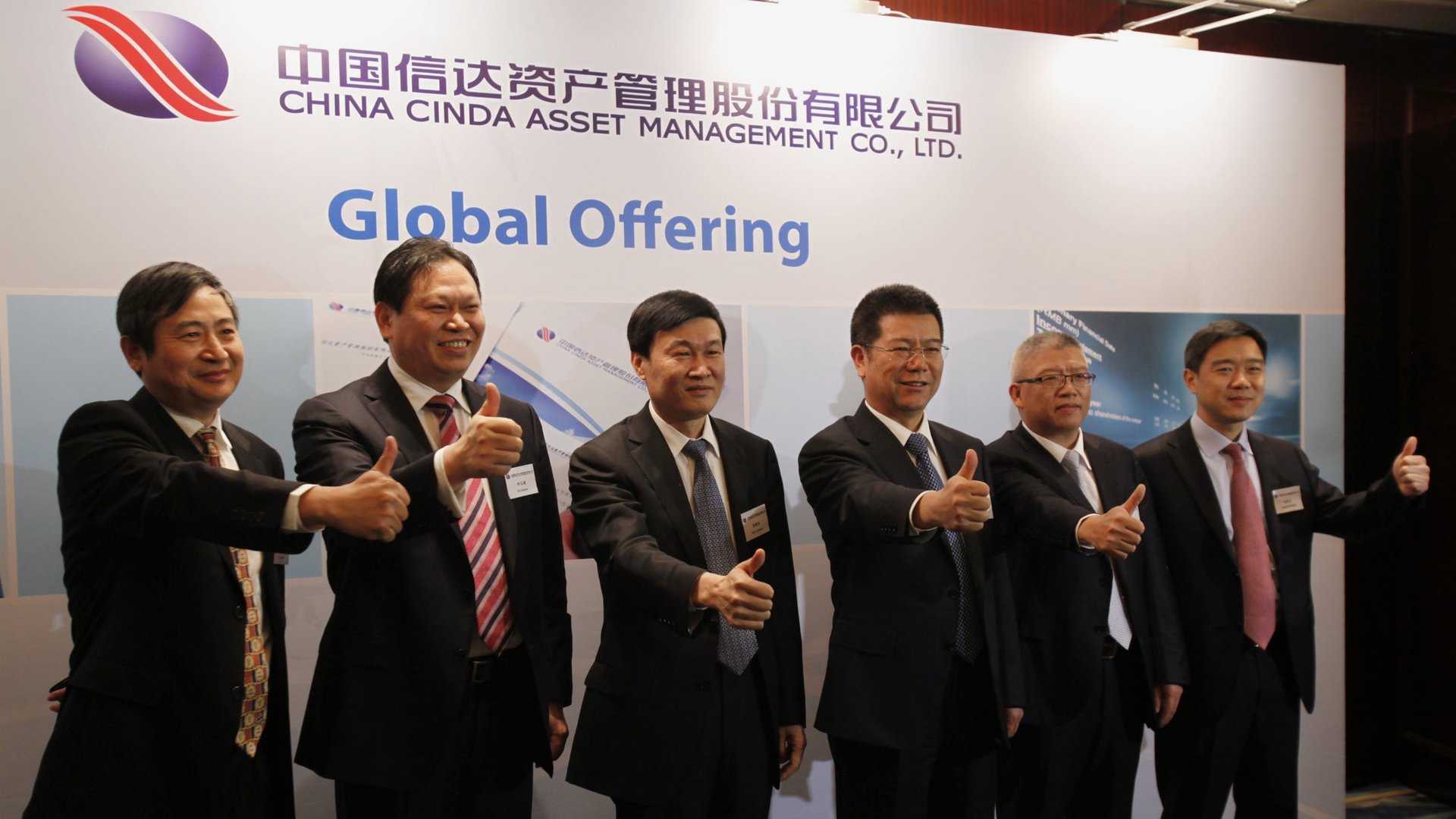Anybody want to buy a company with $14 billion of toxic Chinese debt?
Hong Kong’s biggest IPO of the year depends on Beijing’s willingness to keep the credit flowing. China Cinda Asset Management, one of four companies the Chinese government created to buy delinquent bank debt in the late 1990s, plans to raise as much as $2.5 billion in a Dec. 12 listing that will be Hong Kong’s biggest of the year by far.


Hong Kong’s biggest IPO of the year depends on Beijing’s willingness to keep the credit flowing. China Cinda Asset Management, one of four companies the Chinese government created to buy delinquent bank debt in the late 1990s, plans to raise as much as $2.5 billion in a Dec. 12 listing that will be Hong Kong’s biggest of the year by far.
Esteemed funds like Och-Ziff and Norges Bank Investment Management are lining up to invest in the offering. The investment thesis is that bad debt, which is rising fast as China’s economy slows, is great for Cinda, whose bread and butter is collecting payments and collateral from delinquent debtors. Cinda will leverage its IPO proceeds to purchase an additional $16.4 billion worth of bad debt (paywall) in the next two years, according to the Financial Times.
And Cinda has experience spinning delinquency into big money. For example, when the government restructured state-owned enterprises, Cinda received bad debt that was later converted to equity stakes. From 2010 to June 2013, Cinda earned 13 billion yuan ($2.1 billion) in profit from selling those stakes, according to Cinda’s prospectus (pdf, p.1). As of June, Cinda’s net balance of distressed debt assets was 86.3 billion yuan.
Not everyone is so sanguine about its business model. Stakes in coal companies—a sector that’s hemorrhaged money this year—compose more than 60% of the book value of the remaining $7.2 billion in Cinda’s debt-to-equity swaps. Nearly $8 billion of its distressed debt assets are real estate holdings, a sector many think is overvalued, accumulated from bailing out property trusts.
And an examination of recent history shows that Cinda might not be as effortlessly profitable as it seems. Back in 1999, Cinda bought 247 million yuan worth of delinquent debt from the giant state-owned China Construction Bank and paid for the deal by issuing a bond to CCB. A decade later, the government rolled over Cinda’s debt to CCB until 2014. Most likely because the company’s low cash recovery rate made it impossible to repay the principal, according to the Wall Street Journal, the government and Cinda set up a “co-managed account” to pay CCB back with income tax CCB owed the government.
By scrubbing up Cinda’s books, the government has telegraphed its eagerness to keep the big state-owned banks lending, and that may be the true appeal of IPO for savvy investors—it offers a chance to wager that Beijing will do everything it can to keep credit flowing, including lending a helping hand to Cinda if the firm’s delinquent debt purchases ever become too much to handle.
Let’s not forget, however, that this government-sponsored bad debt shell game is a terrible deal for Chinese households. Government caps on consumer deposit rates effectively subsidize the generation of bad debts for Cinda to purchase, which in turn frees up banks to make even more questionable loans.
It’s a cycle that rewards the destruction of household wealth, which drags down China’s long-term growth prospects. That system can go on for as long as investors believe the government will support insolvent state companies. But it can’t go on forever.